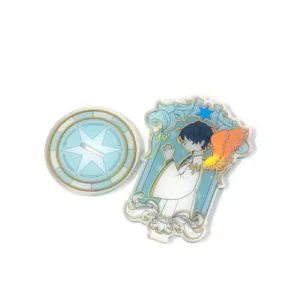Finding the right words to express care and thoughtfulness can be a transformative experience in our communication. Whether you’re sharing a new experience or introducing someone to something special, using alternative phrases for “for the first time” can add warmth and significance to your message.
These alternatives not only enrich your vocabulary but also help convey your feelings more meaningfully. In this article, we’ll explore 30 different ways to express this sentiment, complete with definitions, examples, and the right context for each phrase.
What Does “For the First Time” Mean?
For the first time refers to the initial occurrence of an event or experience. It signifies novelty, highlighting that something is being done, seen, or felt in a way that has never happened before. This phrase often evokes excitement and anticipation, as it marks a moment of discovery or a significant milestone.
When to Use “For the First Time”
You might use for the first time when discussing personal experiences, significant life events, or introducing new concepts to others. It’s ideal for moments of discovery, excitement, or even apprehension, as it underscores the significance of an event that holds value in one’s life or the lives of others.
Is It Professional/Polite to Say “For the First Time”?
Yes, using for the first time can be both professional and polite, depending on the context. In formal situations, it can convey enthusiasm about new projects or initiatives. In personal settings, it expresses warmth and excitement, making it an appropriate choice in most situations.
For the First Time Synonyms:
- For the very first time
- Inaugurally
- Initially
- At the outset
- For the inaugural time
- In the beginning
- For the debut
- For the maiden
- For the first occasion
- At the first opportunity
- For the first instance
- On the first run
- As a novice
- For the initial time
- For the first shot
- For the first glimpse
- For the initial experience
- For the introductory occasion
- As a newcomer
- For the first taste
- For the first time around
- During my first venture
- In my first encounter
- At the launch
- On the premiere
- As a first-time participant
- At the beginning stages
- On the first step
- For the first encounter
- For the first showing
1. For the very first time
Meaning: Emphasizes the uniqueness of the occasion.
Definition: This phrase underlines that an event is happening at its initial occurrence.
Tone: Enthusiastic and nostalgic.
Example: “I watched that movie for the very first time, and it completely captivated me!”
Explanation: Use this phrase when you want to evoke a sense of wonder about a brand-new experience.
2. Inaugurally
Meaning: Refers to the first instance of something, often used in formal contexts.
Definition: The term implies an opening or beginning, especially in ceremonies or official events.
Tone: Formal and respectful.
Example: “The exhibit was inaugurated last night, showcasing talented local artists.”
Explanation: This word is suitable for official events or announcements, highlighting the significance of the first occurrence.
3. Initially
Meaning: Indicates the beginning phase of something.
Definition: It refers to the first stage or instance before any developments or changes.
Tone: Neutral and straightforward.
Example: “Initially, I was skeptical, but I found the experience quite enjoyable.”
Explanation: Use this when reflecting on how your thoughts or feelings evolved from the first experience.
4. At the outset
Meaning: Refers to the very beginning of an event or process.
Definition: This phrase indicates the starting point of something, often with an implication of future developments.
Tone: Reflective and forward-looking.
Example: “At the outset, we faced many challenges, but we learned and grew from them.”
Explanation: Ideal for discussing the early stages of a project or experience.
5. For the inaugural time
Meaning: Similar to “inaugurally,” this phrase emphasizes the first instance of something significant.
Definition: It denotes the first occasion, often with an official or ceremonial context.
Tone: Grand and significant.
Example: “We held the event for the inaugural time this year, celebrating our achievements.”
Explanation: Use this phrase for events that are noteworthy and deserve special recognition.
6. In the beginning
Meaning: Refers to the initial phase of something.
Definition: This phrase indicates the first part of a process or experience.
Tone: Casual and familiar.
Example: “In the beginning, we didn’t know what to expect, but it turned out to be amazing.”
Explanation: This expression works well for recounting personal experiences or stories.
7. For the debut
Meaning: Refers to the first appearance or performance of something or someone.
Definition: The term is often used for performances, presentations, or product launches.
Tone: Exciting and celebratory.
Example: “The band performed their song for the debut, and the crowd loved it!”
Explanation: This phrase is great for highlighting a new artistic or commercial venture.
8. For the maiden
Meaning: Refers to the first instance or occurrence of something, often used for ships or projects.
Definition: The term signifies the inaugural event, especially in formal contexts.
Tone: Elegant and classic.
Example: “We took the maiden voyage of the new cruise ship last weekend.”
Explanation: This phrase carries a sense of tradition and is often reserved for significant undertakings.
9. For the first occasion
Meaning: Highlights the uniqueness of the moment or event.
Definition: This phrase emphasizes that something is happening for the first time.
Tone: Formal and respectful.
Example: “We are thrilled to host this event for the first occasion in our city.”
Explanation: Use this phrase in formal invitations or announcements.
10. At the first opportunity
Meaning: Indicates taking action as soon as possible.
Definition: This phrase emphasizes the immediacy of the first chance to do something.
Tone: Urgent and proactive.
Example: “I will call you at the first opportunity to discuss our plans.”
Explanation: Use this phrase to express eagerness to engage in something new.
11. For the first instance
Meaning: Highlights the significance of the first occurrence.
Definition: This phrase denotes a specific initial happening.
Tone: Neutral and factual.
Example: “For the first instance, we successfully completed the project ahead of schedule.”
Explanation: Ideal for reports or formal discussions.
12. On the first run
Meaning: Refers to the initial attempt or trial of something.
Definition: Indicates the first execution of a task or operation.
Tone: Experimental and hopeful.
Example: “On the first run, the prototype exceeded our expectations.”
Explanation: Useful in discussions about projects or testing.
13. As a novice
Meaning: Indicates that someone is new to an experience or activity.
Definition: This phrase highlights a beginner’s perspective.
Tone: Humble and sincere.
Example: “As a novice, I felt a mix of excitement and anxiety before my first performance.”
Explanation: This phrase is suitable for personal reflections about starting something new.
14. For the initial time
Meaning: Emphasizes the very first occurrence of something.
Definition: This phrase indicates that something is happening for the first time.
Tone: Simple and straightforward.
Example: “For the initial time, I will be traveling abroad.”
Explanation: Use this phrase when discussing upcoming experiences.
15. For the first shot
Meaning: Indicates the first attempt or effort at something.
Definition: This phrase emphasizes giving something a try for the first time.
Tone: Casual and encouraging.
Example: “Let’s give it our first shot and see how it goes!”
Explanation: This phrase conveys a sense of adventure and willingness to try.
16. For the first glimpse
Meaning: Refers to seeing or experiencing something new for the first time.
Definition: This phrase highlights the initial sight or experience of something.
Tone: Curious and excited.
Example: “I had my first glimpse of the sunrise while camping in the mountains.”
Explanation: Use this phrase when describing a new visual or emotional experience.
17. For the initial experience
Meaning: Emphasizes the first encounter with something.
Definition: This phrase indicates that it is the first time experiencing a particular situation.
Tone: Reflective and anticipatory.
Example: “This will be my initial experience with public speaking.”
Explanation: Ideal for personal reflections on new challenges.
18. For the introductory occasion
Meaning: Refers to the first event or introduction to a subject.
Definition: This phrase highlights that something is being introduced for the first time.
Tone: Formal and welcoming.
Example: “We are excited to present this lecture for the introductory occasion.”
Explanation: Use this phrase for formal introductions or presentations.
19. As a newcomer
Meaning: Refers to someone new in a particular situation or place.
Definition: This phrase highlights the perspective of someone experiencing something for the first time.
Tone: Friendly and open.
Example: “As a newcomer to the city, I’m eager to explore all it has to offer.”
Explanation: Great for sharing experiences related to new environments.
20. For the first taste
Meaning: Refers to the first experience of something, often used for food or experiences.
Definition: This phrase emphasizes the initial encounter, especially in sensory contexts.
Tone: Enthusiastic and inviting.
Example: “I had my first taste of authentic Italian pizza last night.”
Explanation: Perfect for describing culinary or experiential discoveries.
21. For the first time around
Meaning: Refers to the first occurrence of an event.
Definition: This phrase indicates the initial cycle of something.
Tone: Casual and laid-back.
Example: “For the first time around, we’ll be launching our product at the fair.”
Explanation: Use this when discussing repeated events or cycles.
22. During my first venture
Meaning: Refers to the first undertaking or experience in a specific area.
Definition: This phrase highlights an initial attempt or project.
Tone: Adventurous and hopeful.
Example: “During my first venture into entrepreneurship, I learned so much.”
Explanation: Ideal for sharing stories of exploration and growth.
23. In my first encounter
Meaning: Refers to meeting or experiencing something new for the first time.
Definition: This phrase emphasizes an initial meeting or experience.
Tone: Personal and reflective.
Example: “In my first encounter with the ocean, I was amazed by its beauty.”
Explanation: Use this phrase when sharing personal stories of new experiences.
24. At the launch
Meaning: Refers to the first introduction of a product or event.
Definition: This phrase emphasizes the initial unveiling or presentation.
Tone: Professional and exciting.
Example: “I was thrilled to be at the launch of the new product line.”
Explanation: Suitable for business contexts or new product releases.
25. On the premiere
Meaning: Refers to the first showing or presentation of something, especially in entertainment.
Definition: This phrase highlights the initial performance of a film, play, or event.
Tone: Glamorous and exciting.
Example: “I attended the premiere of the film last night, and it was fantastic!”
Explanation: Great for discussing events related to arts and entertainment.
26. As a first-time participant
Meaning: Refers to someone who is taking part in an activity for the first time.
Definition: This phrase emphasizes the novelty of being involved in something new.
Tone: Friendly and inclusive.
Example: “As a first-time participant in the marathon, I was filled with nerves and excitement.”
Explanation: Use this when describing experiences in activities or competitions.
27. At the beginning stages
Meaning: Refers to the initial phases of a process or experience.
Definition: This phrase highlights that something is still in its early development.
Tone: Analytical and thoughtful.
Example: “We are currently in the beginning stages of our project.”
Explanation: Suitable for discussions about progress and development.
28. On the first step
Meaning: Refers to the initial action taken toward achieving a goal.
Definition: This phrase emphasizes the very first action in a sequence.
Tone: Motivational and encouraging.
Example: “Taking the first step toward my dreams was both thrilling and daunting.”
Explanation: Ideal for inspirational messages about pursuing goals.
29. For the first encounter
Meaning: Refers to the initial meeting or experience of a person or situation.
Definition: This phrase emphasizes the significance of meeting something or someone for the first time.
Tone: Reflective and warm.
Example: “Our first encounter was unforgettable, filled with laughter and joy.”
Explanation: Great for personal stories or experiences.
30. For the first showing
Meaning: Refers to the initial presentation of something, often in the context of events.
Definition: This phrase highlights the unveiling or introduction of an event or performance.
Tone: Exciting and celebratory.
Example: “The first showing of the art exhibit was a huge success!”
Explanation: Use this for discussing public events or performances.
Conclusion
Exploring different ways to say “for the first time” can add richness to our conversations and help us communicate with more warmth and thoughtfulness. These alternatives allow you to express your feelings in a way that resonates with others, making your messages feel more personal and meaningful.
Whether you’re sharing exciting news or recounting a significant moment, using varied expressions can enhance your communication.
Recent Posts
- 30 Other Ways To Say “Trick or Treat” (With Examples)
- 30 Other Ways to Say “Happy Thursday” (With Examples)
- 30 Other Ways to Say “Good Morning” (With Examples)
- 30 Other Ways to Say ‘I’m Happy for You’ (With Examples)
- 30 Other Ways to Say “Safe Travels” (With Examples)

Daniel Jack is a passionate writer and founder of LexiQuester, a platform dedicated to unraveling the mysteries of words and language. With a love for storytelling and linguistic exploration, he crafts engaging content that inspires curiosity. When he’s not writing, Daniel enjoys diving into books and discovering hidden gems of knowledge.














